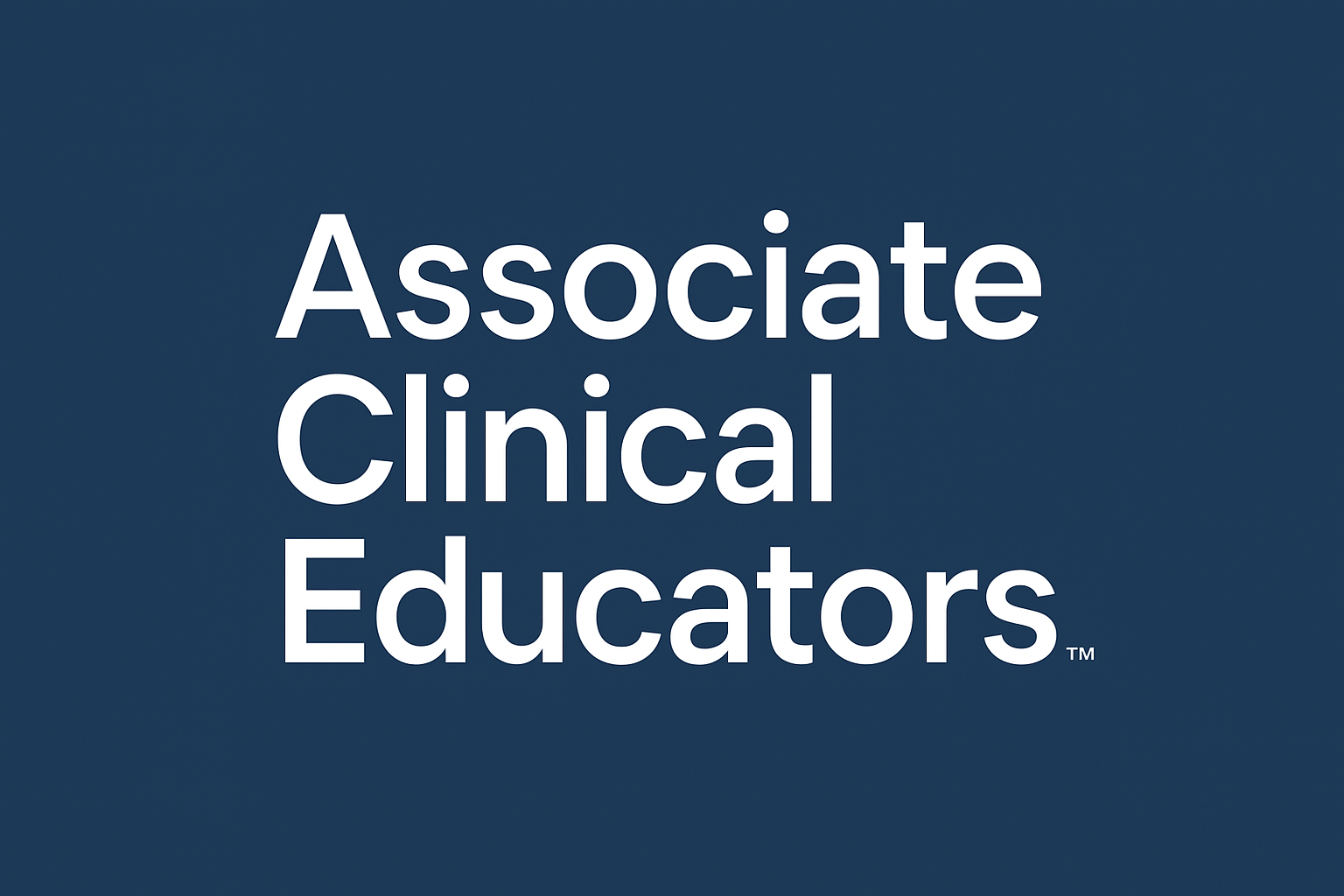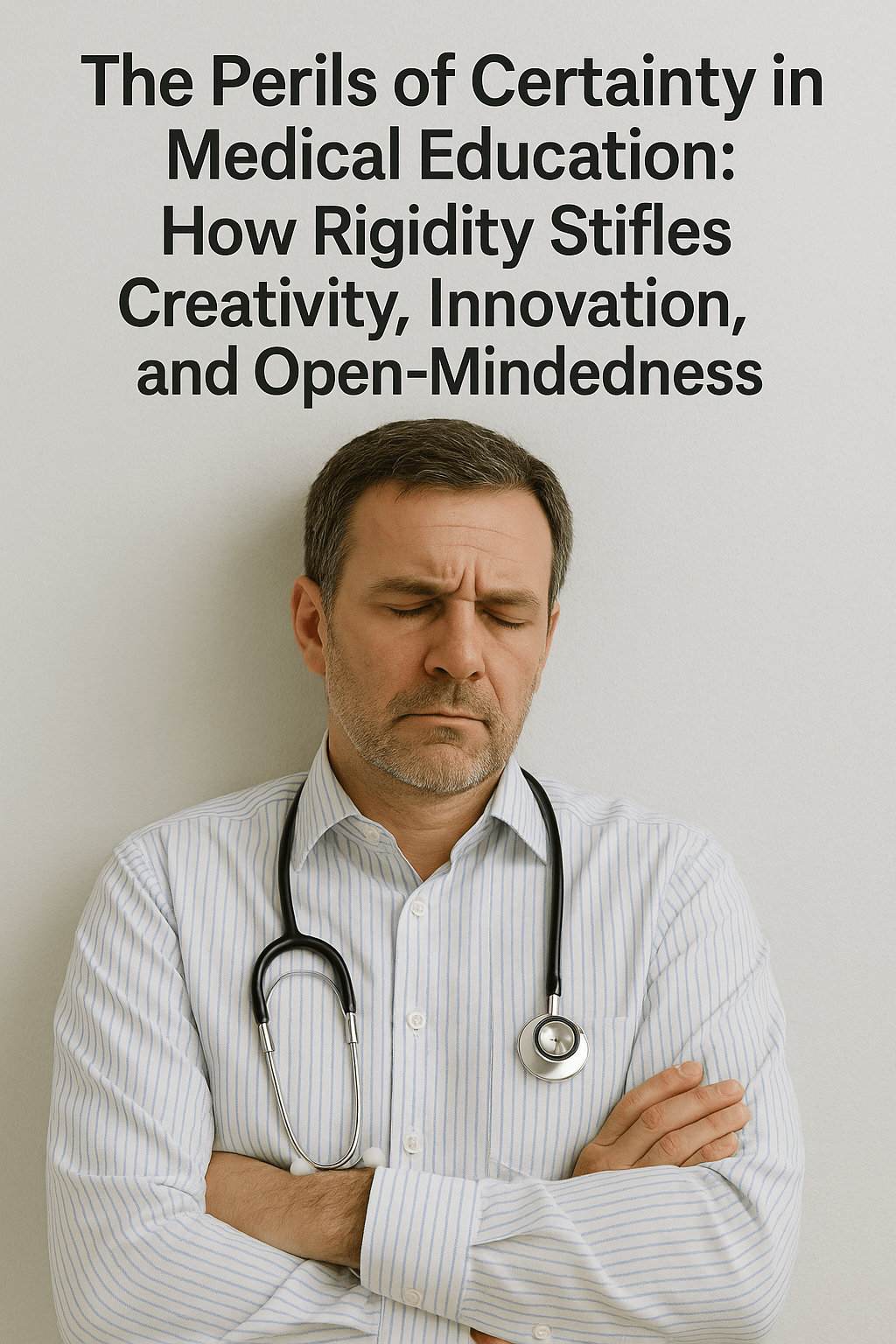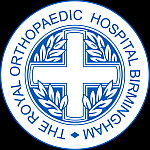Medicine has always carried an expectation of certainty. Patients seek definitive answers. Protocols demand precise execution. Medical education, unsurprisingly, has evolved to mirror these demands—placing emphasis on established knowledge, standardized procedures, and definitive diagnostic pathways.
While certainty is undeniably critical to patient safety and the consistent delivery of care, it carries a hidden cost. An overreliance on certainty within medical education can stifle creativity, inhibit innovation, and restrict the open-mindedness that is essential for meaningful advancement. In a healthcare environment that is becoming increasingly complex and unpredictable, an education system anchored too tightly to rigid answers risks preparing physicians poorly for the realities they will face.
The Culture of Certainty: A Double-Edged Sword
From the earliest stages of training, medical students are conditioned to prioritize the correct answer. Success is often measured by the ability to memorize and reproduce vast quantities of information accurately under pressure. Exams reward precision, not exploration. Protocols reward adherence, not creativity.
This culture, while understandable, inadvertently discourages intellectual risk-taking. Students learn to fear mistakes rather than see them as opportunities for deeper understanding. Questioning established norms—an essential precursor to innovation—becomes risky behavior rather than a valued practice.
The long-term consequences of this mindset are profound. Future clinicians, conditioned to rely on clear, predefined pathways, may struggle when faced with complex, ambiguous clinical situations where no obvious answers exist. They may become less inclined to think independently, less able to adapt when novel problems arise, and less willing to pioneer new approaches that could advance the field.
In an era where medicine must keep pace with rapid technological innovation, evolving patient needs, and emerging global health challenges, the rigidity bred by a culture of certainty is not merely a pedagogical flaw—it is a systemic risk.
The Invisible Weight of Financial Pressure
The challenges to creativity in medical education are not only intellectual but also financial.
Today’s medical students often graduate burdened by enormous debt. The high cost of education creates intense pressure to pursue financially secure specialties and career paths. The luxury of pursuing research, global health initiatives, interdisciplinary degrees, or entrepreneurial ventures—activities that often drive innovation—is increasingly out of reach for many.
Instead of asking, “What area of medicine most excites me?” students may find themselves asking, “What speciality will best allow me to repay my loans?”
This economic pressure narrows the field of exploration. It forces conformity at precisely the moment when the profession desperately needs diversity of thought, creativity, and leadership. Students who might have gone on to innovate in underdeveloped fields, create novel healthcare delivery models, or launch disruptive medical technologies are, instead, absorbed into safer, well-trodden pathways.
Thus, financial constraints and intellectual rigidity reinforce one another, creating an educational environment that prizes security over exploration, certainty over creativity.
Simulation-Based Education: A Pathway Forward
Fortunately, there are promising solutions already reshaping the landscape of medical education—and one of the most powerful among them is simulation-based learning.
Organizations like Associate Clinical Educators (ACEs) (www.associateclinicaleducators.com) have pioneered innovative simulation programs that offer students the opportunity to engage with complex, realistic clinical scenarios in a safe and supportive environment.
Unlike traditional lectures or textbook learning, simulation immerses learners in the messy, unpredictable realities of patient care. Through encounters with professional simulated patients, students must navigate uncertainty, communicate empathetically, adapt to unexpected developments, and reflect critically on their decisions and actions.
Simulation fosters exactly the qualities that traditional education often suppresses:
- Critical thinking
- Adaptability
- Creativity under pressure
- Resilience in the face of failure
Most importantly, simulation encourages a mindset that embraces—not fears—uncertainty. It teaches future clinicians that medicine is not merely a series of correct answers, but an ongoing negotiation with complexity, context, and humanity.
By incorporating initiatives like ACEs into core curricula, institutions can help rebalance medical education. Simulation restores a vital dimension of learning: the permission to think deeply, creatively, and empathetically in pursuit of better patient outcomes.
The Call for Educational Reform
If the medical profession is to meet the demands of the 21st century, reform is essential—not only in what we teach but in how we teach and how we support students financially.
Medical education must move beyond an overemphasis on certainty. It must deliberately create environments that reward curiosity, encourage questioning, and celebrate intellectual exploration. Just as importantly, the financial barriers that inhibit risk-taking and creativity must be addressed. Scholarships, loan forgiveness programs, and funding opportunities for research and innovation must become integral parts of the system, not afterthoughts.
We must recognise that true excellence in medicine is not merely the mastery of existing knowledge, but the courage to advance it. Creativity, adaptability, and openness to new ideas are not ancillary skills; they are core competencies for the physician of the future.
By embracing uncertainty, supporting intellectual freedom, and empowering students to think boldly, we can ensure that the next generation of physicians will not only uphold the science of medicine but push it forward with humanity, innovation, and vision.
Contact Meducate Academy today to take your training programs to the next level.
For an informal chat please get in touch with me: bobspour@meducateacademy.com or on 07870 611850




